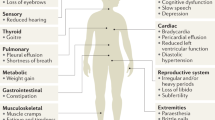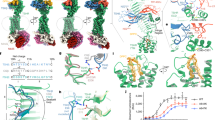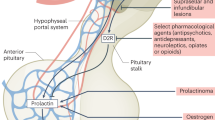Abstract
THYROTROPIC pituitary hormone (TSH) is the principal regulator of thyroid activity. Besides promoting thyroid growth, TSH enhances iodide trapping as well as the release of iodinated compounds. The large intrathyroid iodine stores ultimately result from the net balance of TSH action on these processes. Of course, there must be a critical level of iodine supply to the thyroid gland for which increased trapping cannot compensate any longer. At this point, the thyroidal iodine stores will start to decrease. Work described here suggests that as soon as iodine depletion occurs, metabolism in the thyroid is profoundly changed in such a way as to provide the goitrous gland with an increasingly potent mechanism for triggering additional TSH release. Indeed, as a response to a decreasing iodide supply, the iodine deficient goitre curtails its hormone release much more efficiently than the normal thyroid. By this means the goitrous thyroid not only produces stronger stimuli for extra TSH secretion whenever a further decrease in iodine supply threatens to override the pre-established steady state, but in addition, the principal effects of TSH on thyroid function are no longer balanced. Our results indicate that trapping becomes heavily favoured over release. Thus excellent conditions are created for more efficient preservation of thyroidal iodine stores.
This is a preview of subscription content, access via your institution
Access options
Subscribe to this journal
Receive 51 print issues and online access
$199.00 per year
only $3.90 per issue
Buy this article
- Purchase on Springer Link
- Instant access to full article PDF
Prices may be subject to local taxes which are calculated during checkout
Similar content being viewed by others
References
Greer, M. A., Studer, H., and Kendall, J. W., Endocrinology, 81, 623 (1967).
Studer, H., and Greer, M. A., Endocrinology, 80, 52 (1967).
Loewenstein, J. E., and Wollman, S. H., Endocrinology, 81, 1063 (1967).
Astwood, E. B., and Bissell, A., Endocrinology, 34, 282 (1944).
Solomon, D. H., Metabolism, 5, 667 (1956).
Mayberry, W. E., and Astwood, E. B., J. Biol. Chem., 235, 2977 (1960).
Escobar del Rey, F., Morreale de Escobar, G., Garcia, G., and Garcia, J. G., Nature, 191, 1171 (1961).
Yamada, T., and Lewis, A. E., Endocrinology, 82, 54 (1968).
Ermans, A. M., and Goossens, F., Arch. Intern. Pharmacodyn., 132, 487 (1961).
Studer, H., and Greer, M. A., The Regulation of Thyroid Function in Iodine Deficiency (Hans Huber, Berne and Stuttgart, 1968).
De Groot, L., J. Clin. Endocrinol., 26, 149 (1966).
Greer, M. A., Kendall, J. W., and Smith, M., The Thyroid Gland (edit. by Pitt-Kivers, R., and Trotter, W. R.), 357 (Butterworths, London, 1963).
Van Middlesworth, L., and Triantaphyllidis, E., Amer. Thyroid Assoc. Ann. Meeting, Abstracts, 47 (1967).
Van Middlesworth, L., Current Topics in Thyroid Research (edit. by Cassano, C., and Andreoli, M.), 229 (Academic Press, New York and London, 1965).
Stanbury, J. B., Brownell, G. L., Riggs, D. S., Perinetti, H., Itoiz, J., and Del Castillo, E., Endemic Goiter. The Adaptation of Man to Iodine Deficiency (Harvard University Press, Cambridge, Massachusetts, 1954).
Author information
Authors and Affiliations
Rights and permissions
About this article
Cite this article
BINSWANGER, C., STUDER, H., KOHLER, H. et al. Biological Significance of a Peculiar Pattern of Hormone Release from Iodine Deficient Rat Goitres. Nature 220, 1328–1329 (1968). https://doi.org/10.1038/2201328a0
Received:
Revised:
Issue Date:
DOI: https://doi.org/10.1038/2201328a0
Comments
By submitting a comment you agree to abide by our Terms and Community Guidelines. If you find something abusive or that does not comply with our terms or guidelines please flag it as inappropriate.



